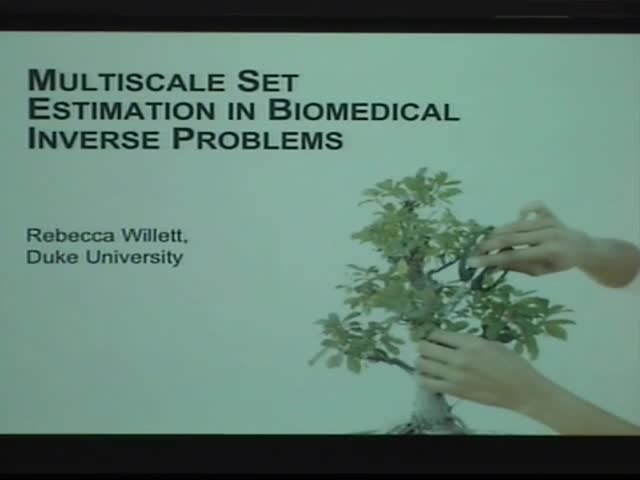Multiscale Set Estimation in Biomedical Inverse Problems
Presenter
November 16, 2011
Keywords:
- multiscale, inverse problems, sparsity regularization, level sets
Abstract
Sparse decomposition methods are effective tools in a myriad biomedical inverse problems. However, in many settings reconstruction is only an intermediate goal preceding additional quantitative analysis. For instance, we may wish to classify tissue types in microscope images or identify tumors or lesions based on computed tomography data. This talk describes how sparse image decomposition methods can be used in conjunction with multiscale set estimation methods to improve subsequent quantitative analyses on large medical datasets. For instance, sparse decomposition for tissue differentiation breaks down in images with boundaries, but multiscale set estimation can be used to accurately identify regions where sparse decomposition can be effectively applied. Similarly, sparse image reconstruction methods alone can spend significant computing resources on estimating features irrelevant to the quantitative goals, but by incorporating multiscale set estimation metrics into the objective function we can perform accurate quantitative analysis much more quickly. This talk will cover both the theoretical underpinnings of these methods and their application to challenging large-scale problems in microendoscopy and tomography.
